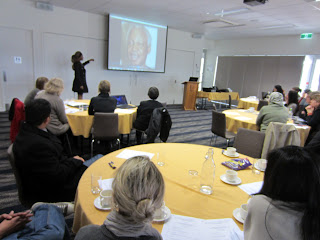The address for the Socialsense blog
http://culturalscene.blogspot.com.au/
The Thebarton Senior College Moodle
Course Calendar for your time management
Contact Emma and Malcolm at
emma.hebenstreit@thebartonsc.sa.edu.au
malcolm.mcinerney@thebartonsc.sa.edu.au
Stage 2 Society and Culture
The right course?
So far this year we have studied a Culture topic called Cultural
Diversity, a Contemporary challenge topic called Social Ethics – now we are
going to study the Global Issues topic called A Question of Rights. Here is a summary of this, our final topic.
Topic 3: Global Issues
A Question of Rights
A topic to:
- explore the interrelationships
between choice, rights, and responsibilities.
- appraise and explore the notion
of fundamental human rights for all people in a globalising world.
- consider ways in which human rights
have evolved and changed
- think about the ways in which
the rights of one may work against the rights of others.
- explore notions of shared
understanding of human rights in different contexts.
- consider the feelings of those
continually marginalised because of particular characteristics (e.g. physical
appearance, illness, age, gender, dress, disability, ethnicity, religion,
sexuality, political views, lack of access to technology, and lack of
employment)
- examine the effects of discrimination,
marginalisation, paternalism, prevailing stereotypes, and social policies on
those who experience disadvantage.
- see that countries throughout
the world share, and are connected by, media images of elections, warfare, and
acts of terrorism. In this context, students may examine the interrelationships
between social justice, civil responsibility, civil liberties, and the role of
the state.
- explore conflict or tension
over rights at a local level (e.g. censorship, police detention, unfair
advertising, harassment, bullying, or terrorism).
- examine the roles of groups
(such as the Australian Human Rights Commission, Link-Up services, and refugee
associations) whose ethical aim is to protect human rights.
- consider how individuals may
act to promote human rights.
Getting started
A fundamental question for this topic
is the question; what is a right for a human? The answer to this question will
differ from place to place, country to country, culture to culture.
The
following questions will give you a start at thinking about Human Rights in
Australia and across the world.
Have a go at answering these basic
questions whilst exploring the issue of rights.
b.
What should be the basic rights
of humans?
In
answering questions c. to e. consider the work of the Australian Human Rights
Commission
c.
What are our rights in
Australia?
d.
Are our rights limited in
Australia?
e.
Does everyone in Australia have
the same rights?
f.
What topics/issues are
discussed under the heading of Human Rights in Australia
g.
Is the community happy with the protection of
Human Rights in Australia?
h.
Why would anyone be against the
work of Amnesty International and other Human Rights organizations? i.e UN,
Human Rights Commission.
i.
What organisations promote human rights around the world? What are some of the current issues globally
under the banner of Human Rights.
Human Rights Watch
Watch these two YouTube videos on Human Rights








